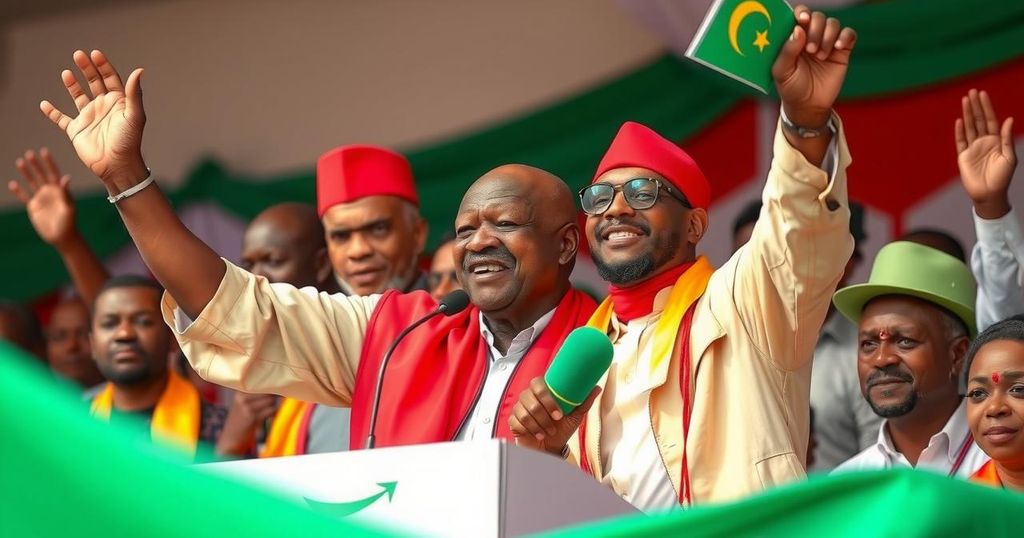Chad’s Ruling Party Claims Majority Amidst Controversial Electoral Process

The ruling party in Chad, the Patriotic Salvation Movement, announced their victory in the recent parliamentary election, claiming 124 of 188 seats amid widespread opposition boycotts. With a participation rate of 51.56%, concerns over the election’s legitimacy abound. President Mahamat Deby framed the election as a step toward democracy and decentralization, yet opposition parties labeled it a ‘charade’, indicating a larger crisis of confidence in governance.
Chad’s ruling party, the Patriotic Salvation Movement, has claimed the majority in the parliamentary election, securing 124 out of 188 seats in the National Assembly, as announced by the head of the electoral commission, Ahmed Bartchiret. This election, held on December 29, was significantly boycotted by over ten opposition parties, raising concerns about its legitimacy, as expressed by the main opposition group, which labeled the event a “charade.” The participation rate was recorded at 51.56 percent, highlighting skepticism regarding the election’s validity among the electorate.
President Mahamat Idriss Deby emphasized that this election represents a pivotal move towards decentralization and democracy for Chad, a goal yearned for by the Chadian populace. The parliamentary polls also followed significant political transitions in Chad, including Deby’s assumption of power in 2021 after the death of his predecessor, Idriss Deby Itno. The recent elections are contextually critical, considering Chad’s ongoing challenges, such as militant threats from Boko Haram in the Lake Chad region and shifting military alliances, especially regarding connections with France, the former colonial power.
The election occurred amidst a backdrop of insecurity and unrest in the Sahel region, where nations have been re-evaluating their foreign military partnerships. In light of these factors, the elections were perceived by many as an essential step towards stabilizing governance, though doubts about their credibility remain prominent in both domestic and international circles.
The parliamentary elections in Chad marked a significant moment in the country’s political landscape, being the first in over a decade. Following Mahamat Idriss Deby’s rise to power, Chad has faced numerous challenges, including security threats from militant groups and societal calls for political reform. The elections were intended to present a pathway towards decentralization of governance, yet the substantial boycott from opposition parties indicated widespread cynicism regarding the electoral process. This sentiment reflects Chad’s ongoing struggle for true democratic representation and effective governance after years of authoritarian rule.
In conclusion, while the Patriotic Salvation Movement has officially claimed a majority in the parliamentary election, the overwhelming boycott by opposition parties and the reported low voter turnout underscore a strong current of discontent and distrust among the populace. These elections are more than just a procedural formality; they are reflective of deeper societal issues in Chad. The government must address these concerns thoughtfully, as ongoing political stability hinges on fostering genuine democratic processes and inclusive governance.
Original Source: www.aljazeera.com






